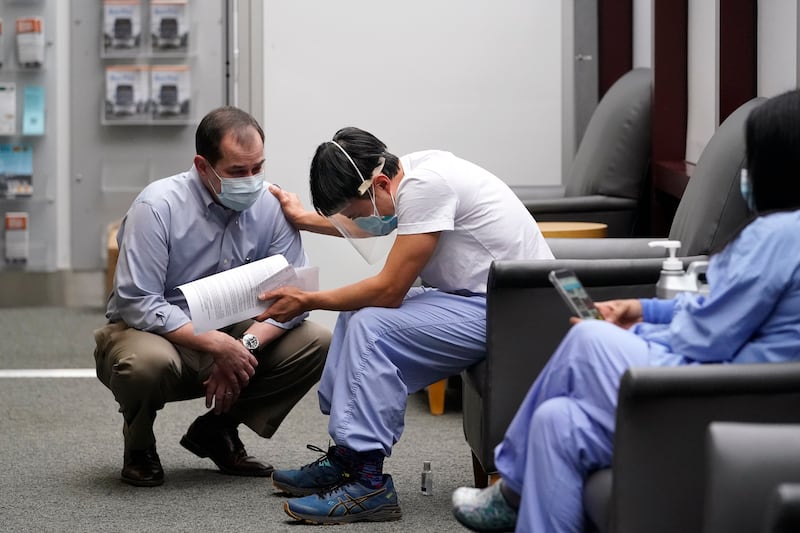A new study from researchers at the University of Washington has revealed some of the common COVID-19 symptoms among those who suffer from infection over the long haul.
What’s happening
The new study — published in the journal JAMA Network Open — recently reviewed the cases of 117 people who suffered from COVID-19. Researchers followed up with these patients three to nine months after their diagnoses. The participants reported suffering COVID-19 symptoms after their initial infection.
- The COVID-19 patients reported the symptoms they felt months after the infection, according to Live Science.
- The most common symptom was fatigue, which was reported by 13.6% of participants.
- Loss of smell and taste was also reported by 13.6%.
Meanwhile, a separate 13% said they suffered from muscle aches, breathing troubles, cough and brain fog months after infection.
“Our research indicates that the health consequences of COVID-19 extend far beyond acute infection, even among those who experience mild illness,” the authors wrote in the study, according to LiveScience.
Long-haul symptoms
Researchers have been digging into the symptoms suffered from long-haul patients. Most recently, experts recently told The Lily (published by The Washington Post) that women are reporting more “long-haul” COVID-19 symptoms.
Ryan Hurt, the lead researcher at the Mayo Clinic on post-COVID-19 syndrome, told The Lily that he has seen 20,000 positive COVID-19 cases in his hospital. He said 10% of those cases had long-haul symptoms. and 60% to 80% of those patients were women.
- Per The Lily; “Aside from biology, there may be deep sociological or cultural underpinnings accounting for the split — simply that women may be more willing to seek medical attention and speak openly about symptoms, especially those affiliated with mood and cognitive issues.”


